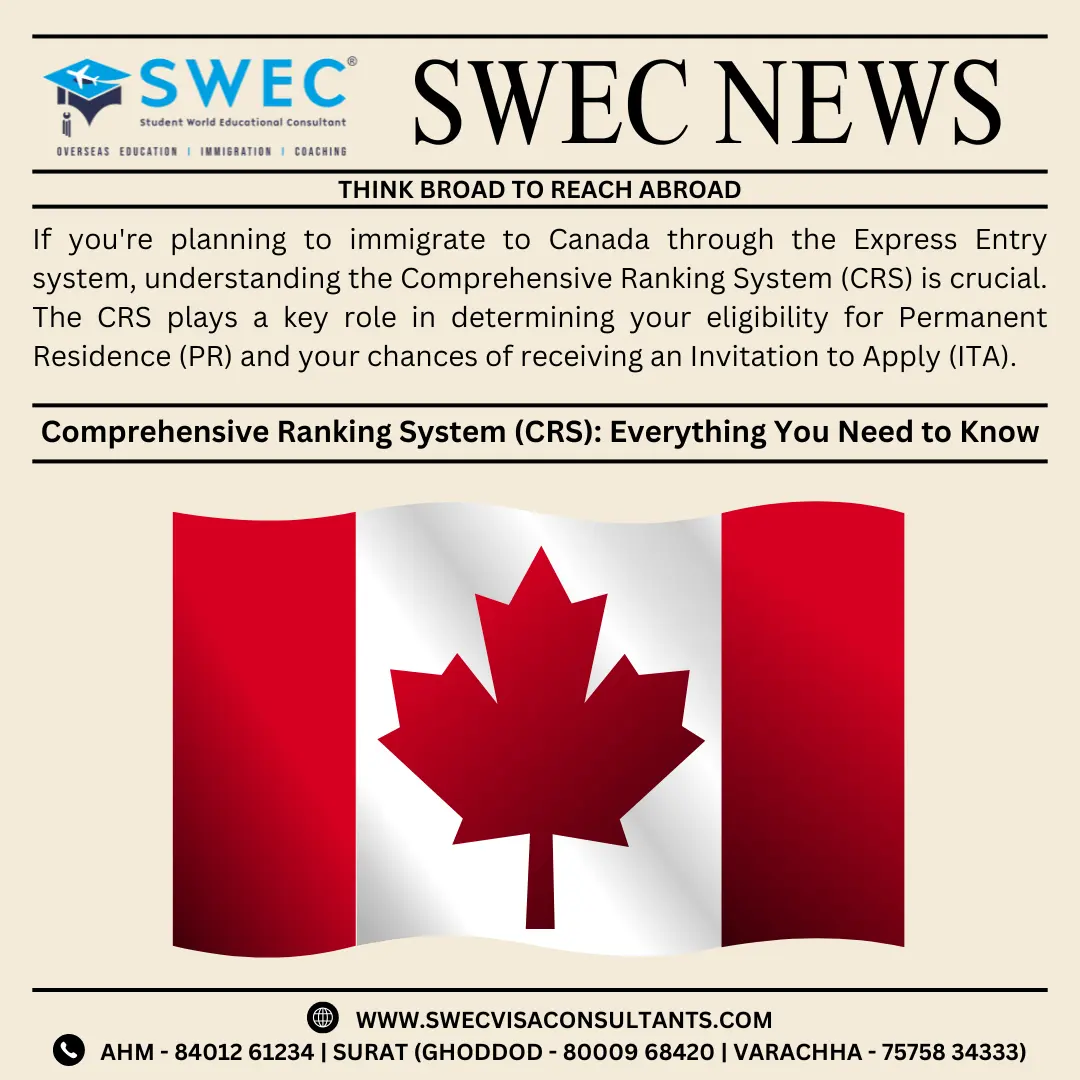If you’re planning to immigrate to Canada through the Express Entry system, understanding the Comprehensive Ranking System (CRS) is crucial. The CRS plays a key role in determining your eligibility for Permanent Residence (PR) and your chances of receiving an Invitation to Apply (ITA).
In 2023 alone, Canada issued 110,266 ITAs through Express Entry, and according to its 2024-26 Immigration Levels Plan, Canada aims to admit another 110,000 permanent residents through this system in 2024. Your CRS score plays a major role in determining whether you’ll receive an ITA.
Who is eligible for a CRS score?
To receive a CRS score, you must qualify for one of these Express Entry programs:
- Federal Skilled Worker Program (FSWP)
- Federal Skilled Trades Program (FSTP)
- Canadian Experience Class (CEC)
The CRS helps Immigration, Refugees, and Citizenship Canada (IRCC) identify economic immigration candidates most suited to fill labour market gaps in Canada. Higher CRS scores improve your chances of receiving an ITA through Express Entry draws.
How does the CRS work?
CRS awards points based on factors like:
- Skills
- Education
- Language proficiency
- Work experience
- Age
- Family ties in Canada
- Arranged employment
These factors combine to give you a score out of 1,200. IRCC holds regular Express Entry draws, inviting candidates with the highest CRS scores to apply for PR. In the event of a tie, the candidate’s application date serves as a tiebreaker.
CRS breakdown:
- Core Human Capital: Points are awarded for your age, education, language skills (English or French), and Canadian work experience. Candidates can score up to 500 points for this section (460 if applying with a spouse or common-law partner).
- Spouse/Common-Law Partner Factors: Up to 40 additional points can be awarded based on your partner’s education, language skills, and Canadian work experience.
- Skills Transferability: Candidates are awarded points based on how their qualifications combine. For example:
- Foreign work experience + Canadian work experience
- Education + language proficiency
- You can earn up to 100 points for skills transferability.
- Additional Points: These can be earned through factors such as:
- Sibling in Canada (15 points)
- French language proficiency (up to 50 points)
- Arranged employment (up to 200 points)
- Provincial nomination (600 points)
What CRS score do you need?
In 2023, IRCC introduced category-based selection draws to address labour shortages. Cutoff scores for these categories were generally lower than those for general draws. The lowest cutoff in 2023 was 354 for agriculture and agri-food occupations. For general draws, the lowest was 481 in March 2023.
In 2024, the lowest score at the time of writing was 338, in a French proficiency category-based draw, while the lowest for general draws was 524.
Improving your CRS score:
While some factors like age are fixed, others can be improved:
- Language Skills: Enhancing your proficiency in English and French could boost your score significantly, especially if you retake the language test.
- Education: Higher levels of education can earn you more points, especially Canadian education.
- Work Experience: Gaining more skilled work experience, especially in Canada, could raise your score.
- Arranged Employment: If you secure a job offer, you could receive up to 200 additional CRS points.
- Spouse/Partner Factors: If your partner has higher qualifications or skills, consider applying with them as the primary applicant.
Other Immigration Options:
If you don’t qualify for Express Entry, there are still alternatives:
- Provincial Nominee Programs (PNPs): These allow provinces to nominate candidates based on specific criteria, independent of Express Entry.
- Family Sponsorship: Canada also offers immigration pathways like family sponsorship and refugee or humanitarian programs.
For more information on CRS scores, you can contact us





